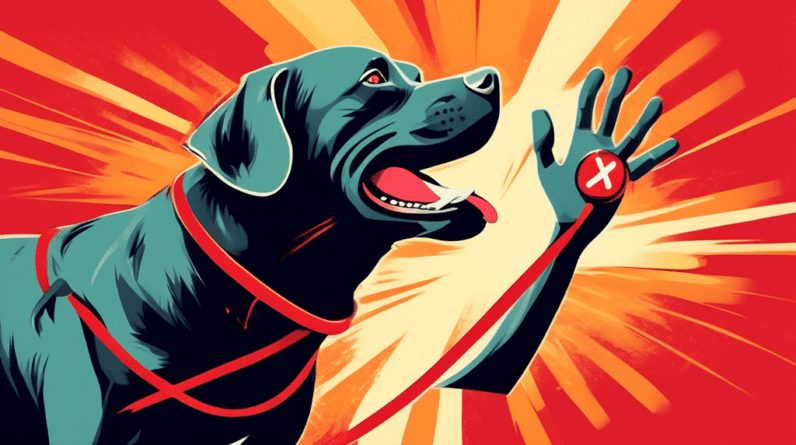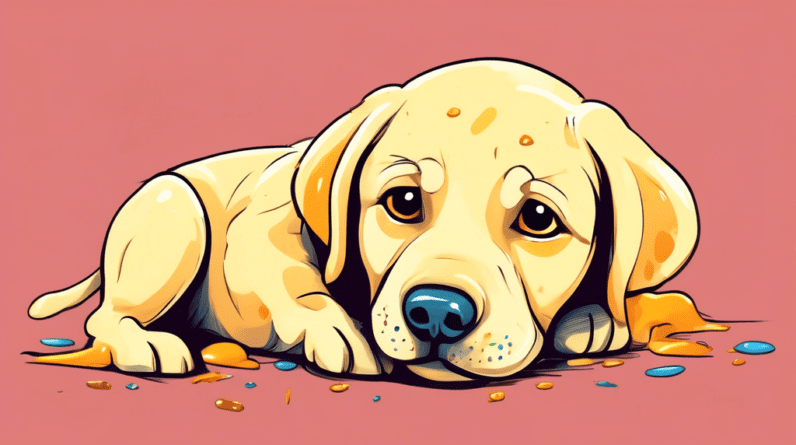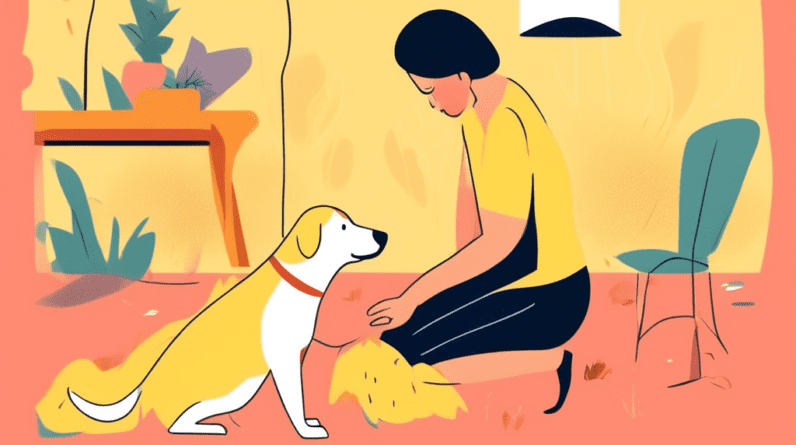
Why Is My Lab So Itchy? Common Causes and Solutions
Labrador Retrievers are beloved for their friendly nature, intelligence, and loyalty. But any Lab parent will tell you, these otherwise happy-go-lucky dogs can be prone to itchy skin. Watching your furry friend scratch relentlessly is heartbreaking, and finding the root of the problem is crucial for providing relief.
This comprehensive guide delves into the common reasons behind itchy skin in Labs, offering practical solutions and preventive measures.
Understanding the Itch: It’s More Than Just Skin Deep
While it might seem like a surface-level issue, itchy skin in Labs often points to an underlying problem. Identifying the cause is the first step toward effective treatment. Here are some of the most common culprits:
1. Allergies: The Usual Suspects
Just like humans, Labs can fall victim to allergies, which trigger an immune response and lead to inflammation and itching. Common culprits include:
a) Flea Allergy Dermatitis (FAD): Small Bite, Big Problem
Don’t let their size fool you—fleas can cause significant discomfort for your Lab. When a flea bites, its saliva triggers an allergic reaction in sensitive dogs, leading to intense itching, redness, and even hair loss.
b) Environmental Allergies: The Great Outdoors, Indoors
Pollen, dust mites, mold spores—these airborne allergens can wreak havoc on your Lab’s skin. Seasonal allergies often flare up during specific times of the year, while indoor allergens are a year-round concern.
c) Food Allergies: The Culprit in Their Bowl?
While less common than environmental or flea allergies, food allergies can cause persistent itching in Labs. Common culprits include beef, dairy, chicken, wheat, and soy.
2. Parasites: Unwelcome Guests
Fleas aren’t the only tiny terrors that can make your Lab itch. Other parasites like mites (causing mange), ticks, and lice can also lead to skin irritation and relentless scratching.
3. Infections: Bacterial, Fungal, and Oh So Itchy
Bacteria and yeast thrive in warm, moist environments, making skin folds, ears, and paws particularly susceptible to infections. These infections can cause itching, redness, odor, and discomfort.
4. Dry Skin: When Hydration Is Key
Dry skin is a common issue, especially during colder months or in dry climates. When your Lab’s skin lacks moisture, it can become flaky, irritated, and itchy.
5. Endocrine Disorders: A Hormonal Imbalance
Hormonal imbalances, like hypothyroidism, can affect skin health and lead to dryness, hair loss, and itching.
6. Genetic Predisposition: Some Labs Are More Prone
Sadly, some Labs are genetically predisposed to skin conditions like atopic dermatitis, a chronic inflammatory disease that causes itching, redness, and skin thickening.
Decoding the Itch: Recognizing the Signs
Itching is often the first sign of a problem. But how can you tell if it’s more than just a passing annoyance? Look out for these telltale signs:
* **Excessive Scratching, Licking, or Chewing:** This might seem obvious, but pay attention to the frequency and intensity of your Lab’s scratching.
* **Redness and Inflammation:** Irritated skin appears red and inflamed.
* **Hair Loss:** Constant scratching can lead to hair loss, creating bald spots or thinning areas.
* **Sores or Scabs:** These can develop from excessive scratching and licking.
* **Changes in Skin Color or Texture:** The skin might appear darker, thicker, or have a greasy or scaly appearance.
* **Ear Infections:** Labs with itchy ears might shake their heads frequently or scratch at their ears.
* **Foot Chewing or Licking:** Allergies or infections can make paws itchy and uncomfortable.
Seeking Help: When to See Your Vet
If your Lab’s itching is persistent, severe, or accompanied by any of the signs mentioned above, it’s crucial to consult your veterinarian. They will:
* **Conduct a thorough physical exam**
* **Review your Lab’s medical history**
* **Perform tests** (skin scraping, allergy testing, blood work) to identify the underlying cause.
Treating the Itch: Relief for Your Lab
Once your veterinarian determines the cause of your Lab’s itching, they’ll recommend a tailored treatment plan. Options might include:
1. Medications: Targeting the Cause
* **Antihistamines:** These can help manage allergic reactions.
* **Antibiotics or Antifungals:** These combat bacterial or fungal infections.
* **Parasite Prevention Medications:** These prevent and treat fleas, ticks, mites, and other parasites.
* **Immunotherapy:** This long-term treatment can help desensitize your Lab to specific allergens.
2. Topical Treatments: Soothing the Skin
* **Medicated Shampoos and Conditioners:** These can help control itching, reduce inflammation, and treat infections.
* **Anti-itch Sprays or Creams:** These provide immediate relief from itching.
* **Essential Fatty Acid Supplements:** These can improve skin health and reduce dryness.
Home Remedies: Supporting Your Lab’s Skin Health
In addition to veterinary care, several home remedies can complement your Lab’s treatment plan:
* **Oatmeal Baths:** Colloidal oatmeal is known for its soothing properties. Add it to a lukewarm bath to help relieve itchy skin.
* **Coconut Oil:** This natural moisturizer can help hydrate dry skin. Apply a small amount to affected areas.
* **Cool Compresses:** Apply a cool, damp washcloth to irritated areas to provide temporary relief.
Prevention is Key: Keeping Your Lab Comfortable
While not all causes of itching are preventable, these proactive measures can help minimize your Lab’s risk:
* **Year-Round Parasite Control:** Use veterinarian-recommended flea, tick, and heartworm preventatives.
* **Regular Bathing:** Bathe your Lab with a gentle, hypoallergenic shampoo to remove allergens and keep their skin clean.
* **Food Trial:** If a food allergy is suspected, your vet might recommend a food trial with a novel protein or a hydrolyzed diet.
* **Manage Environmental Allergens:** Use air purifiers, wash bedding frequently in hot water, and vacuum regularly to minimize allergens in your home.
* **Provide a Balanced Diet:** A high-quality diet rich in essential fatty acids promotes healthy skin.
A Lifelong Commitment to Itch-Free Living
Itchy skin can be a frustrating and uncomfortable experience for both you and your Lab. By understanding the common causes, recognizing the signs, and seeking prompt veterinary care, you can help your furry friend enjoy a happier, itch-free life. Remember, a proactive approach to your Lab’s skin health is always the best course of action.






